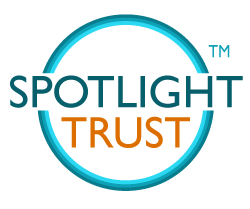
It’s no question that a lot goes into building trust.
Trust tends to be fragile, and once it’s broken, can take a lot of time and effort to build back.
We see in the case of people who have dealt with untrustworthy people in the past. Even if you had nothing to do with the trust-violator, it can be hard for you to build trust back up and repair the damage done in leadership roles for this person.
For this reason, here at Spotlight Trust, we think of trust like tanzanite – valuable, an investment, and fragile.
If you’re not familiar with tanzanite, it’s a rare, purplish-blue gemstone that often has many different hues to it – and happens to be one of the most valuable gemstones in the world.
Trust is extremely valuable – in a 2018 study, an advocacy group found that the top 10% of the most trustworthy public companies outperformed the S&P 500 by over 25% and that the group outperformed the S&P 500 every single year. Tanzanite is valued more than rubies, emeralds, or diamonds, and ranks in the top 10 most valuable gemstones on the planet.
Like trust, tanzanite is formed only in the presence of a lot of energy. While trust requires leaders to invest time and emotional labor, tanzanite needs the power of tectonic plates smashing against each other with incredibly large amounts of heat and pressure.
Also like trust, tanzanite is fragile. Just as years of trust can crumble by the sudden withholding of information or public lies made by a leader, tanzanite is extremely fragile, making it extremely difficult to work with and to preserve.
While every company may not need tanzanite to function, every company will need trust. In the changing times of technological leaps and bounds and AI preparing to completely change the way we hire and do business, trust is going to be the new basis of business.
With trust being the new necessity for leaders to cultivate if they want to create agile cultures and workforces that will survive the great unknowns ahead, what next steps are you taking to future-proof your organization? What Trust-Centered skills are you most focused on?

